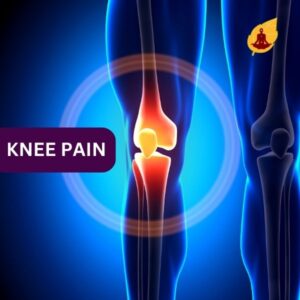Understanding Qi: Energy Flow and Health : The idea of Qi (pronounced “chee”) has been a key part of traditional Chinese medicine for thousands of years. Qi is often seen as the vital energy or life force that flows through every living being, connecting the mind, body, and spirit. In this blog, we’ll dive into what Qi really means, why it’s so important for our health, how it moves through the body, and how we can keep it in balance for our overall well-being. Understanding Qi can give us valuable insights into staying healthy and preventing illness.
1.What is Qi? – Understanding Qi: Energy Flow and Health
Understanding the Concept and Origins of Qi
Qi, pronounced “chee,” is a core idea in traditional Chinese medicine (TCM) that has been around for more than 2,000 years. Think of Qi as the vital energy or life force that keeps all living things alive and vibrant. According to TCM, Qi isn’t just something that exists inside us; it flows throughout our bodies in specific pathways known as meridians. These meridians connect different parts of our bodies, allowing Qi to nourish our organs and tissues, keeping everything functioning smoothly.
Why is Qi Important for Health?
In traditional Chinese medicine, health is all about balance and harmony. When Qi flows freely and smoothly through the body, it’s like a well-oiled machine—everything works as it should, and we feel healthy and strong. However, if the flow of Qi gets blocked or disrupted, it’s like hitting a snag in that machine. This can lead to feelings of discomfort, illness, or other health issues.
Different Types of Qi
Qi isn’t just one single force; there are different types of Qi, each with its own role in our bodies:
Yuan Qi (Original Qi): This is the Qi we’re born with, the energy we inherit from our parents. It’s like the foundation of our life force.
Zong Qi (Gathering Qi): This type of Qi comes from the air we breathe and the food we eat. It’s what fuels our day-to-day activities and keeps us going.
Wei Qi (Defensive Qi): Think of Wei Qi as your body’s natural defense system. It protects you from external threats, like viruses and bacteria, helping to keep you healthy.
Understanding these different types of Qi can give us a better sense of how our bodies work and what we can do to stay healthy. When all these types of Qi are in balance, we’re more likely to feel our best.
2. How Does Qi Flow Through the Body? – Understanding Qi: Energy Flow and Health
Meridians: The Pathways of Qi
Qi moves through our bodies along a network of channels called meridians. You can think of these meridians as invisible highways that connect our internal organs to the surface of our bodies. There are 12 main meridians, and each one is linked to a specific organ system, like the heart, lungs, liver, and so on. These pathways ensure that Qi reaches every part of the body, keeping everything in sync and functioning well.
Why Balanced Qi Flow Matters
Having a smooth and balanced flow of Qi is crucial for our overall health—physically, emotionally, and mentally. When Qi flows freely, it’s like having good circulation or steady electrical wiring in your home. It powers everything your body does, from digesting food and breathing to how you feel emotionally. A balanced Qi flow means that all these systems are working in harmony, which helps you stay healthy and feel your best.
What Happens When Qi Gets Blocked?
Sometimes, Qi can get blocked or become stagnant, like a traffic jam on those invisible highways. When this happens, it can cause a range of problems, such as pain, tiredness, or emotional ups and downs. This is where practices like acupuncture, massage, and herbal remedies come in handy. These techniques help to clear the blockages and get Qi flowing smoothly again, restoring balance and helping you feel better.
Understanding how Qi flows through your body and the importance of keeping it balanced can empower you to take steps toward better health and well-being.
3. The Connection Between Qi and Health – Understanding Qi: Energy Flow and Health
Physical Health
Qi plays a crucial role in every aspect of our physical health. When your Qi is strong and balanced, it acts like a powerful engine that keeps your body running smoothly. It boosts your immune system, helps your digestion work efficiently, and even ensures you get restful sleep. However, when your Qi is weak or blocked, it can lead to a range of health problems. You might feel tired all the time, have trouble digesting food, or find yourself catching colds more often.
Emotional and Mental Well-being
Qi isn’t just about physical health—it also affects your emotional and mental state. When your Qi is balanced, you’re more likely to feel calm, centered, and emotionally stable. Everything just feels in harmony. But if your Qi is out of balance, it can lead to emotional and mental struggles, like stress, anxiety, or even depression. Just as physical symptoms signal a problem with your Qi, emotional and mental challenges can be signs that your Qi needs attention too.
Aging and Qi
As we get older, it’s natural for our Qi to gradually decline. This is a normal part of aging, but it doesn’t mean we can’t do anything about it. By living a healthy lifestyle—eating well, staying active, managing stress, and getting enough rest—we can help maintain our Qi and slow down the aging process. Keeping your Qi flowing smoothly can enhance your overall vitality and help you enjoy a longer, healthier life.
Understanding the connection between Qi and your health gives you the tools to take control of your well-being, ensuring that both your body and mind are in the best possible shape as you go through life.
4. How to Support and Balance Your Qi – Understanding Qi: Energy Flow and Health
Acupuncture
Acupuncture is a powerful method for balancing Qi. It involves placing very thin needles into specific points on your body that are connected to your meridians—the pathways that Qi flows through. By targeting these points, acupuncture helps to clear any blockages in your Qi, allowing it to flow freely again. This can relieve pain, reduce stress, and improve overall health.
Qi Gong and Tai Chi
Qi Gong and Tai Chi are ancient Chinese practices that combine gentle movements, controlled breathing, and meditation to enhance the flow of Qi. Think of them as a blend of exercise and meditation. Regularly practicing Qi Gong or Tai Chi can strengthen your body, sharpen your mind, and bring emotional balance, all by promoting the smooth flow of Qi.
Herbal Remedies
In traditional Chinese medicine, certain herbs are used to support and nourish your Qi. For instance, ginseng is often taken to boost energy levels, while ginger is known for its warming properties that help circulate Qi throughout the body. These herbs are natural ways to keep your Qi strong and balanced.
Healthy Diet
What you eat plays a big role in maintaining strong Qi. A diet rich in fresh, whole foods helps to keep your Qi vibrant and flowing. Certain foods, like ginger, garlic, and green tea, are particularly good at enhancing Qi. They not only nourish your body but also support the flow of Qi, keeping you healthy and energized.
Mindfulness and Meditation
Stress and negative emotions can block your Qi, leading to physical and emotional imbalances. Practicing mindfulness and meditation is an excellent way to calm your mind and reduce stress. These practices help to clear the blockages in your Qi, allowing it to flow smoothly and keeping you in a state of balance and harmony.
By incorporating these practices into your life, you can support and balance your Qi, leading to better health, increased energy, and a greater sense of well-being.
5. The Role of Qi in Acupuncture Therapy – Understanding Qi: Energy Flow and Health
Qi and Diagnosis
In acupuncture therapy, the first step is understanding the state of your Qi. The practitioner does this by carefully examining your pulse, tongue, and other signs and symptoms. These observations help them pinpoint where your Qi might be blocked, weak, or out of balance. This diagnostic process is like a roadmap, guiding the acupuncturist to the areas that need attention.
Acupuncture Points
Acupuncture works by targeting specific points on your body, known as acupuncture points, where Qi can be accessed and adjusted. These points are like key intersections in the network of meridians through which Qi flows. By gently inserting needles into these points, the acupuncturist can help to unblock and regulate the flow of Qi, restoring balance and promoting healing throughout your body.
Benefits of Acupuncture
The benefits of acupuncture are wide-ranging. By balancing your Qi, acupuncture can relieve pain, reduce stress, improve sleep, and enhance your overall sense of well-being. It’s a safe and natural therapy that can effectively treat many conditions, from chronic pain and digestive issues to mental health concerns like anxiety and depression. Whether you’re dealing with a specific problem or simply looking to maintain good health, acupuncture can be a powerful tool for keeping your Qi in harmony.
Meridians: The Pathways of Qi
Qi moves through our bodies along a network of channels called meridians. You can think of these meridians as invisible highways that connect our internal organs to the surface of our bodies. There are 12 main meridians, and each one is linked to a specific organ system, like the heart, lungs, liver, and so on. These pathways ensure that Qi reaches every part of the body, keeping everything in sync and functioning well.
Why Balanced Qi Flow Matters
Having a smooth and balanced flow of Qi is crucial for our overall health—physically, emotionally, and mentally. When Qi flows freely, it’s like having good circulation or steady electrical wiring in your home. It powers everything your body does, from digesting food and breathing to how you feel emotionally. A balanced Qi flow means that all these systems are working in harmony, which helps you stay healthy and feel your best.
What Happens When Qi Gets Blocked?
Sometimes, Qi can get blocked or become stagnant, like a traffic jam on those invisible highways. When this happens, it can cause a range of problems, such as pain, tiredness, or emotional ups and downs. This is where practices like acupuncture, massage, and herbal remedies come in handy. These techniques help to clear the blockages and get Qi flowing smoothly again, restoring balance and helping you feel better.
If you’re curious about how Qi impacts your health or if you’re feeling symptoms that might suggest an imbalance, why not schedule an acupuncture session at AMP Acupuncture Clinic? Our skilled practitioners are here to help you achieve your best health using a natural and holistic approach. Give us a call at 703-917-3101 to book your appointment and start your journey to feeling better.
Read More About :Best Yoga For Flexibility And Strength







